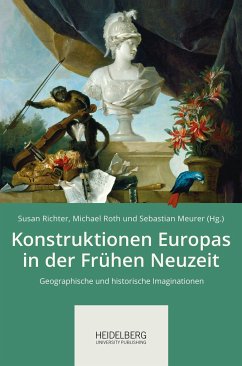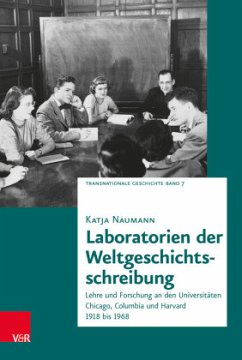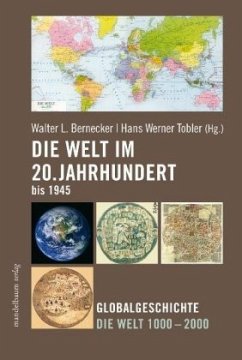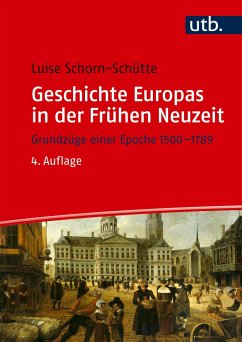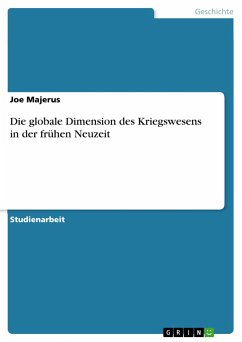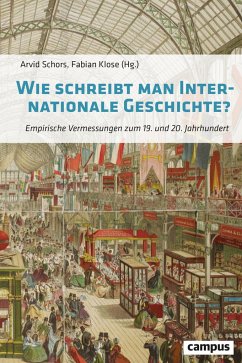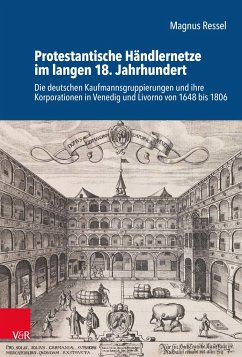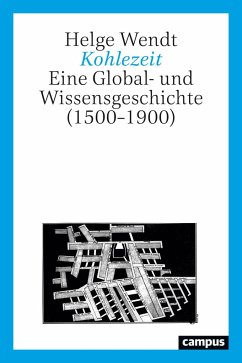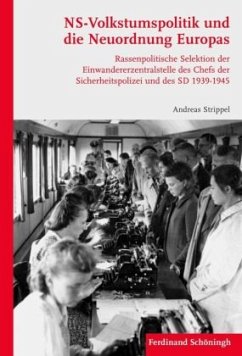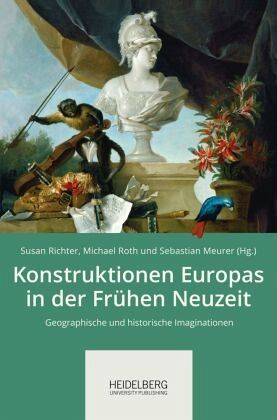
Konstruktionen Europas in der Frühen Neuzeit
Geographische und historische Imaginationen. Beiträge zur 11. Arbeitstagung der Arbeitsgemeinschaft Frühe Neuzeit
Herausgegeben: Richter, Susan; Roth, Michael; Meurer, Sebastian
Versandkostenfrei!
Versandfertig in 6-10 Tagen
39,90 €
inkl. MwSt.

PAYBACK Punkte
0 °P sammeln!
Globalgeschichtliche Zugriffe sind in der Geschichtswissenschaft angekommen. Auf der 11. Arbeitstagung der Arbeitsgemeinschaft Frühe Neuzeit hatten sich die Beiträger zum Ziel gesetzt, diese nicht nur auf ferne Weltregionen, sondern besonders auf Europa anzuwenden. "Europa" unterlag als politisch-kulturelle Raumvorstellung und auch als Forschungsgegenstand immer wieder vielschichtigen Aushandlungsprozessen, die nicht nur entlang territorialer Herrschaftsgrenzen, eindeutiger Topographien oder Sprachräume verliefen. Die Ergebnisse der Tagung eröffnen neue Blicke auf geographisch und historis...
Globalgeschichtliche Zugriffe sind in der Geschichtswissenschaft angekommen. Auf der 11. Arbeitstagung der Arbeitsgemeinschaft Frühe Neuzeit hatten sich die Beiträger zum Ziel gesetzt, diese nicht nur auf ferne Weltregionen, sondern besonders auf Europa anzuwenden. "Europa" unterlag als politisch-kulturelle Raumvorstellung und auch als Forschungsgegenstand immer wieder vielschichtigen Aushandlungsprozessen, die nicht nur entlang territorialer Herrschaftsgrenzen, eindeutiger Topographien oder Sprachräume verliefen. Die Ergebnisse der Tagung eröffnen neue Blicke auf geographisch und historisch imaginierte Selbst- und Fremdzuschreibungen, Behauptungen von Identität und Alterität und die Wandelbarkeit von Peripherie und Zentrum. Sie bilden zugleich eine Werkschau aktueller Forschungsfelder der international weit vernetzten historischen Frühneuzeitforschung in Deutschland.



